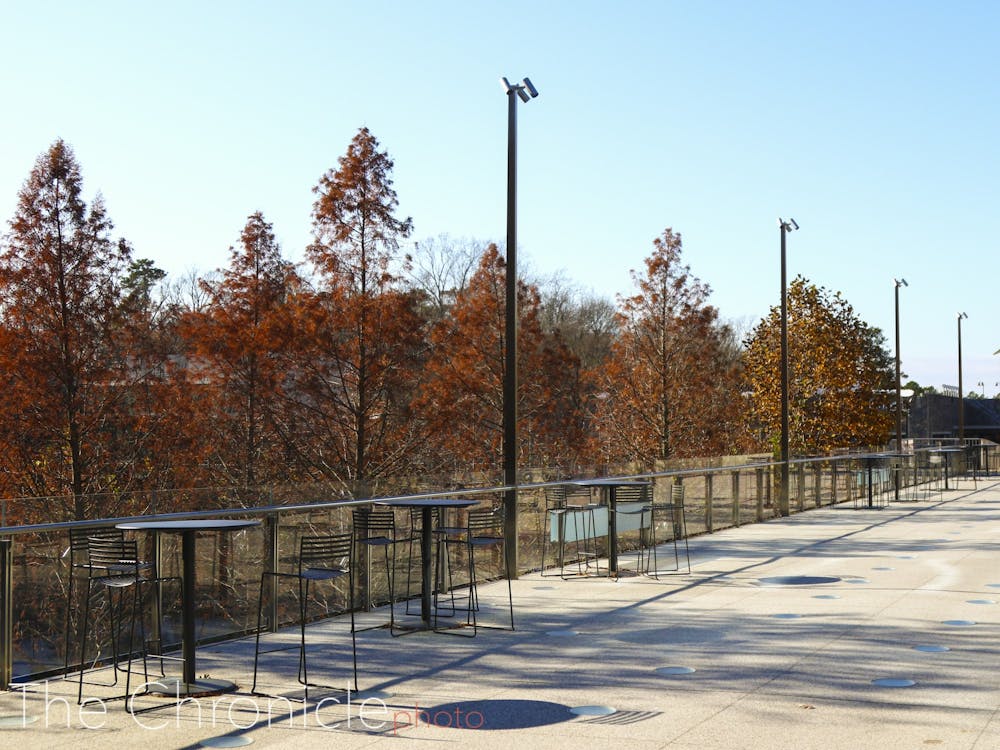Amid a pandemic and a movement to abolish the Greek organizations associated with the Duke Panhellenic Association and Interfraternity Council, both groups are taking a new look at rush.
Neither Panhel nor IFC has released a formal statement regarding spring rush. But representatives of each organization told The Chronicle about their thinking for next semester.
IFC Director of Recruitment Adam Krekorian, a senior, shed some light on IFC’s rush plans.
“We are planning on having recruitment in January. As of now, it is planned to be virtual and in compliance with university and local policy,” Krekorian wrote in an email.
Panhellenic Association President Kate Chen, a senior, wrote that Panhel’s official plan will be decided on Sept. 25, after which a statement will be released. A Panhel-wide town hall on Sept. 4 revealed some of the recruitment options that are being considered.
Some of these possibilities include postponement to fall 2021 or spring 2022, completely random matching of potential new members, and double-blind recruitment rounds with cameras off and no names or information given to either PNMs or chapters. An option for a rush system based on the recruitment system for Duke’s non-Greek selective living groups is also on the table.
Regardless of recruitment method, Panhel hopes to implement a PNM-matching algorithm similar to that of Blue Devil Buddies, a Duke Student Government program that matched incoming first-years with mentors over the summer. That matching would be based on survey questions “centered around purpose in joining a sorority, values, goals throughout college, etc.,” Chen wrote, in order to “avoid superficial matchings.”
Chapter delegates—representing the 10 chapters in Panhel—will vote on all of these reforms, and each option requires the agreement of at least seven chapters to be viable, according to recruitment bylaws. If none of the options are viable, Panhel will pursue the double-blind recruitment method.
Panhel is also planning on instating new permanent alterations to recruitment that aim to foster inclusion. According to a town hall document, they will be “limiting PNM information given to chapters like high school and hometown, … no longer ask[ing] for PNM pictures or legacy information, … and more heavily emphasizing that all PNMs can waive the [recruitment] registration fee if there are financial concerns.”
“Given that much of the abolish/reform movement is coming from seniors, conducting recruitment this year with an emphasis on reform will allow us to continue educating new classes on why reform is important and prevent the sentiment from fading away moving forward,” Chen wrote.
In an email, Chen clarified that there has always been the opportunity to waive the registration fee, but she hopes to make its availability more “more prominent” this year.
Furthermore, “this year the recruitment fee will likely be free,” Chen wrote. Panhel will also enforce new “dirty rush” guidelines involving social media posts and group meals to limit interaction between Panhel members and PNMs prior to formal recruitment, according to Chen.
Get The Chronicle straight to your inbox
Sign up for our weekly newsletter. Cancel at any time.

Madeleine Berger is a Trinity senior and an editor at large of The Chronicle's 119th volume.

